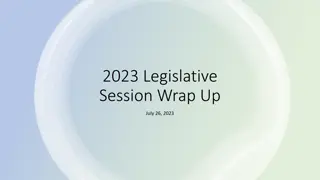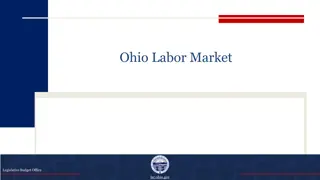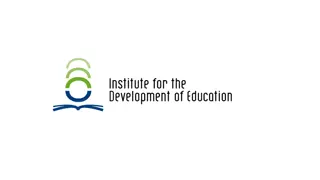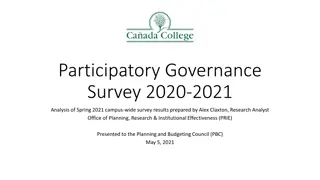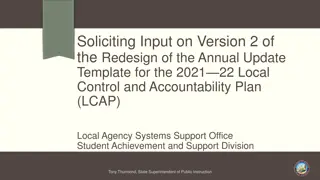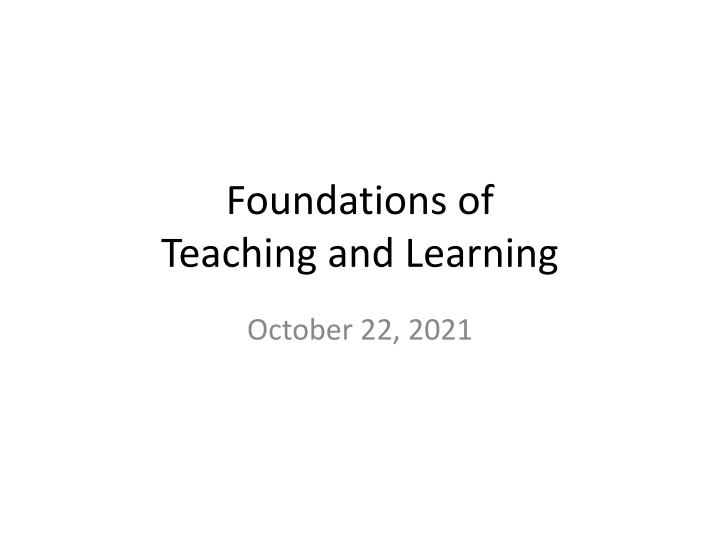
Foundations of Teaching and Learning: Paulo Freire's Impact on Education
Explore the impactful journey of Paulo Freire, a renowned thinker in education, from his teaching in Pernambuco to his exile during the Brazilian military dictatorship. Discover how his work in literacy programs shaped educational practices across different countries.
Download Presentation

Please find below an Image/Link to download the presentation.
The content on the website is provided AS IS for your information and personal use only. It may not be sold, licensed, or shared on other websites without obtaining consent from the author. If you encounter any issues during the download, it is possible that the publisher has removed the file from their server.
You are allowed to download the files provided on this website for personal or commercial use, subject to the condition that they are used lawfully. All files are the property of their respective owners.
The content on the website is provided AS IS for your information and personal use only. It may not be sold, licensed, or shared on other websites without obtaining consent from the author.
E N D
Presentation Transcript
Foundations of Teaching and Learning October 22, 2021
Paulo Freire A thinker with a bit more of an interesting personal history than the other folks we have studied
Freire in 1943 Teaching in public school in Pernambuco
Pernambuco in 1943 The capital, Recife, combines Violence equal to Rio de Janeiro Great poverty The countryside Highly illiterate Most of the population live in fazendas (plantations) where coroneis (land barons) exercise heavy control over plantation workers lives
The Nordeste today Human development index comparable to Angola In strong contrast to other parts of Brazil such as Rio Grande do Sul, Santa Catarina, or S o Paulo, which are more comparable to Southern Europe
The Nordeste today The successors of the Coroneis still have considerable power in Northeastern rural areas Though they haven t used the term to describe themselves since the 1990s Attempts at rural development and business education often meet with strong (and sometimes violent) opposition However, with greater civil rights since the 1988 Constitui o Cidad , and the attention of the national news media, the power of the successors of the Coroneis is much reduced
Freire in 1946 Running Pernambuco Department of Education
Freire in 1962 Began large-scale programs in literacy education
Brazil in 1964 The Junta Militar takes control of the government Freire is imprisoned and then exiled to Bolivia
Freire in the 1960s-1980s Freire begins publishing He designs/advises large-scale literacy programs in Chile, Nicaragua, Guinea-Bissau These programs critiqued for deviating from his published ideas and becoming increasingly focused on the political stances of ruling parties (Kirekendall et al., 2010) He eventually moves to Harvard and then Geneva
Freire Just as Vygotsky is hard to understand outside of the context of the Soviet Union and Marxist dialectic Freire is hard to understand outside the context of Brazil s social situation in that era, his exile by the Junta Militar, and his subsequent activities in designing literacy programs
Freire and Ramos Ramos was Freire s preferred translator Despite being a native speaker of neither Portuguese nor English
Freire and Ramos Ramos was Freire s preferred translator Despite being a native speaker of neither Portuguese nor English Unfortunately for us, Freire thought Ramos was awesome and refused to authorize any other translations. He viewed it as disloyal to even consider the possibility
Freire and Ramos Freire s Portuguese is lyrical and beautiful Ramos s English translation of Freire is appalling Weird or confusing word choices Ramos restructures entire sections in ways that make very little to sense to me.
Freire and Ramos One of the biggest issues is literal translations of terms banking education being the best example A colorful metaphor, even if the translation of educa o banc ria is awkward
Freire and Ramos Freire s seemingly dismissive use of the word illiterates is completely Ramos Freire s writing in Portuguese is respectful towards the students he works with
What is Freires model for a teacher? Teacher-student with students-teachers (alt trans: "Teacher who is learning with learners who are teaching") Teacher is in dialogue with students, who teach even while being taught. Growing together. Arguments based on authority aren't considered worthwhile (in Ramos "are no longer valid") Teachers are on the side of freedom, not against it Teacher is re-forming reflections based on the reflections of the students
Culture Circles (Perhaps better translated as "cultural center activities")
Culture Circles How do they differ from traditional education for adults?
Culture Circles How do they differ from traditional education for adults? Coordinator instead of teacher Dialogue instead of lecture Programs broken into learning units instead of large- scale formal courses (translated as "syllabi") Integrating understanding political situations and determining plans for action with formal topics of study
Freires Dialogue and Anti-Dialogue Dialogue: Working together to develop understanding in an attitude of "simpatia" Simpatia" translated as "empathy" but a better translation would be "harmonious mutual understanding" Developing critique in the context of searching together for something, with faith in each other and humility Anti-Dialogue: The relationship of harmonious mutual understanding is broken
Design of education For Freire, education is designed in partnership with the population being served How does that differ from childrens' education in America today? How does that differ from adult/professional education in America today?
Freire and Dewey How does Freire's differentiation between dialogue and anti-dialogue compare to Dewey's traditionalism/progressivism?
Sets of statements High school teaching should integrate modern political issues High school teaching should focus on skills and concepts and avoid modern political issues Paulo Freire s ideas are important, pretty much everywhere. Paulo Freire s ideas might be valuable in some contexts, but aren t useful in the country I grew up in. The role of a teacher is to help their students learn The role of a teacher is to learn along with their students Which ones do you agree more with?
Go to breakout rooms Pick one of these sets of statements that you disagree about and discuss them Don t try to convince your conversational partners but try to find harmonious mutual understanding
Ladson-Billings Key theorist in culturally relevant pedagogy and critical race theory
Ladson-Billings in 1953 Attending public school in Philadelphia
Culturally-relevant pedagogy Committed to collective, not merely individual, empowerment
Three criteria of culturally-relevant pedagogy (a) Students must experience academic success (b) students must develop and/or maintain cultural competence (c) students must develop a critical consciousness through which they challenge the status quo of the current social order
Academic success Despite the current social inequities and hostile classroom environments, students must develop their academic skills. The way those skills are developed may vary, but all students need literacy, numeracy, technological, social, and political skills in order to be active participants in a democracy. ensuring that the students learned that which was most meaningful to them.
Cultural Competence maintain some cultural integrity as well as academic excellence. Culturally relevant teachers utilize students' culture as a vehicle for learning.
Examples of Cultural Competence Teacher used students familiarity with rap music to discuss curricular topics around literal and figurative meanings and technical aspects of poetry Bringing in artists or craftspersons in residence from parents and using what they teach as bridge to more formally academic skills Explicit instruction in code-switching
But isnt that just good teaching? Are these principles (academic success and cultural competence) generally applicable in education?
But isnt that just good teaching? Are these principles (academic success and cultural competence) generally applicable in education? Should cultural competence (in Ladson- Billing s sense; in terms of the local population) be a part of instruction in all schools?
But isnt that just good teaching? Are these principles (academic success and cultural competence) generally applicable in education? Should cultural competence (in Ladson-Billing s sense; in terms of the local population) be a part of instruction in all schools? What do you do in a highly multi-cultural classroom? What do you do about students who are not part of the (local) majority group?
What about critical consciousness? Is that just good teaching ?
What about critical consciousness? Is that just good teaching ? How do we scale critical consciousness and avoid oversimplification, party lines, and backlash?
Lisa Delpit Key writer and researcher discussing issues of power and diversity in classrooms MacArthur genius grant winner
Cultures of Power (Delpit, 1988) 1. Issues of power are enacted in classrooms. 2. There are codes or rules for participating in power; that is, there is a "culture of power." 3. The rules of the culture of power are a reflection of the rules of the culture of those who have power. 4. If you are not already a participant in the culture of power, being told explicitly the rules of that culture makes acquiring power easier. 5. Those with power are frequently least aware of or least willing to acknowledge its existence. Those with less power are often most aware of its existence.
How do you communicate with someone who has more power but is clueless? Delpit notes that the most common response when dealing with someone who is both powerful and clueless is silence Anyway, I'm not bothering with it anymore, now I'm just in it for a grade So, I shut them out. I go back to my own little cubby, my classroom, and I try to teach the way I know will work, no matter what those folk say "Please tell those people, just don't help us anymore! I give up. I won't talk to them again! It just doesn't make any sense to keep talking to them.
How do you communicate with someone who has more power but is clueless?
How do you avoid being the kind of person who people just can t talk to?
Equity and Power "I want the same thing for everyone else's children as I want for mine. But, as Delpit points out, different students need different things How do we avoid providing the same thing for everyone else's children as I want for mine. ?
The importance of product Teachers do students no service to suggest, even implicitly, that "product" is not important. In this country, students will be judged on their product regardless of the process they utilized to achieve it. And that product, based as it is on the specific codes of a particular culture, is more readily produced when the directives of how to produce it are made explicit. What do you think?
The importance of product Teachers do students no service to suggest, even implicitly, that "product" is not important. In this country, students will be judged on their product regardless of the process they utilized to achieve it. And that product, based as it is on the specific codes of a particular culture, is more readily produced when the directives of how to produce it are made explicit. What do you think? How does this compare/contrast to Freire?
The importance of product Teachers do students no service to suggest, even implicitly, that "product" is not important. In this country, students will be judged on their product regardless of the process they utilized to achieve it. And that product, based as it is on the specific codes of a particular culture, is more readily produced when the directives of how to produce it are made explicit. What do you think? How does this compare/contrast to Dewey?

